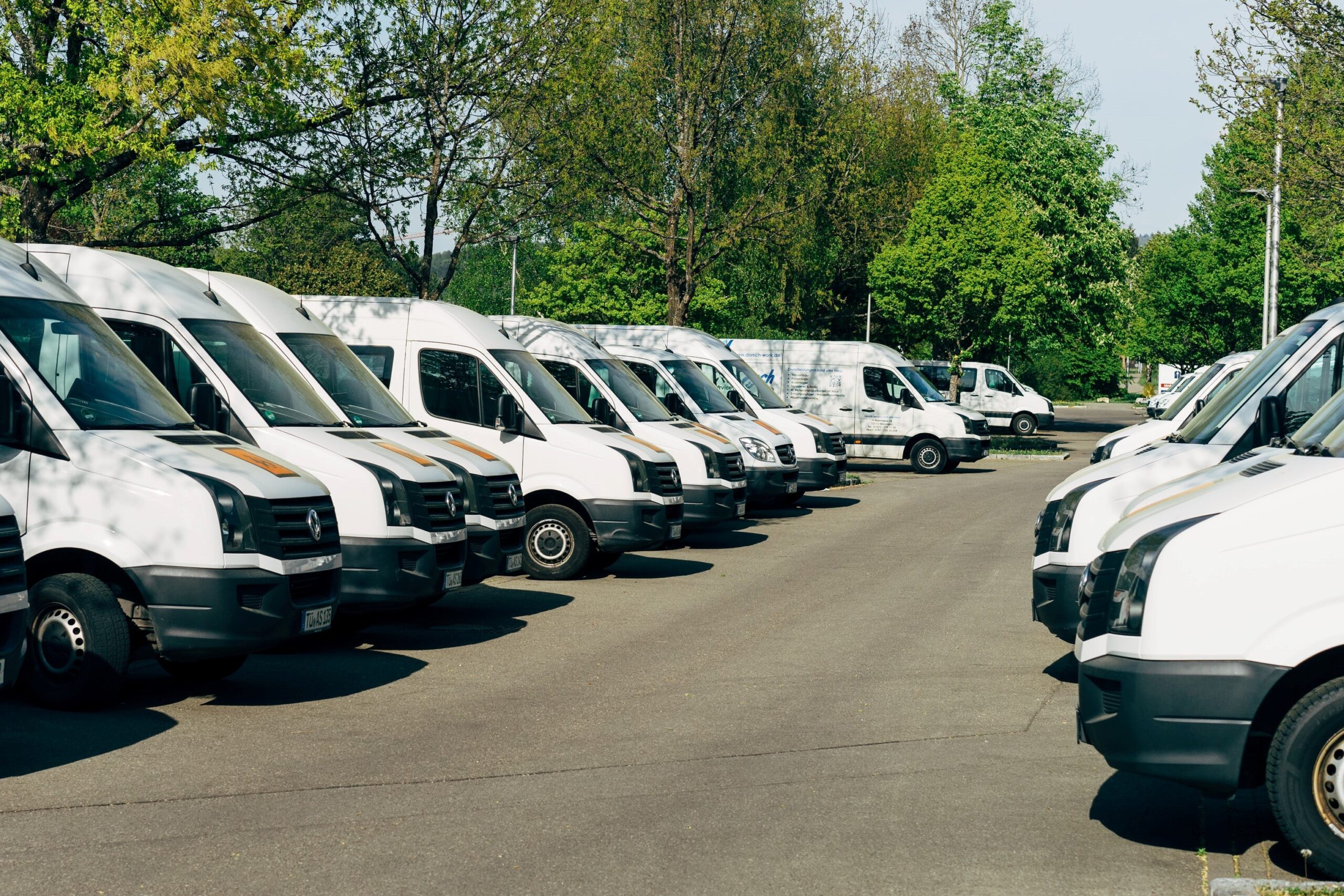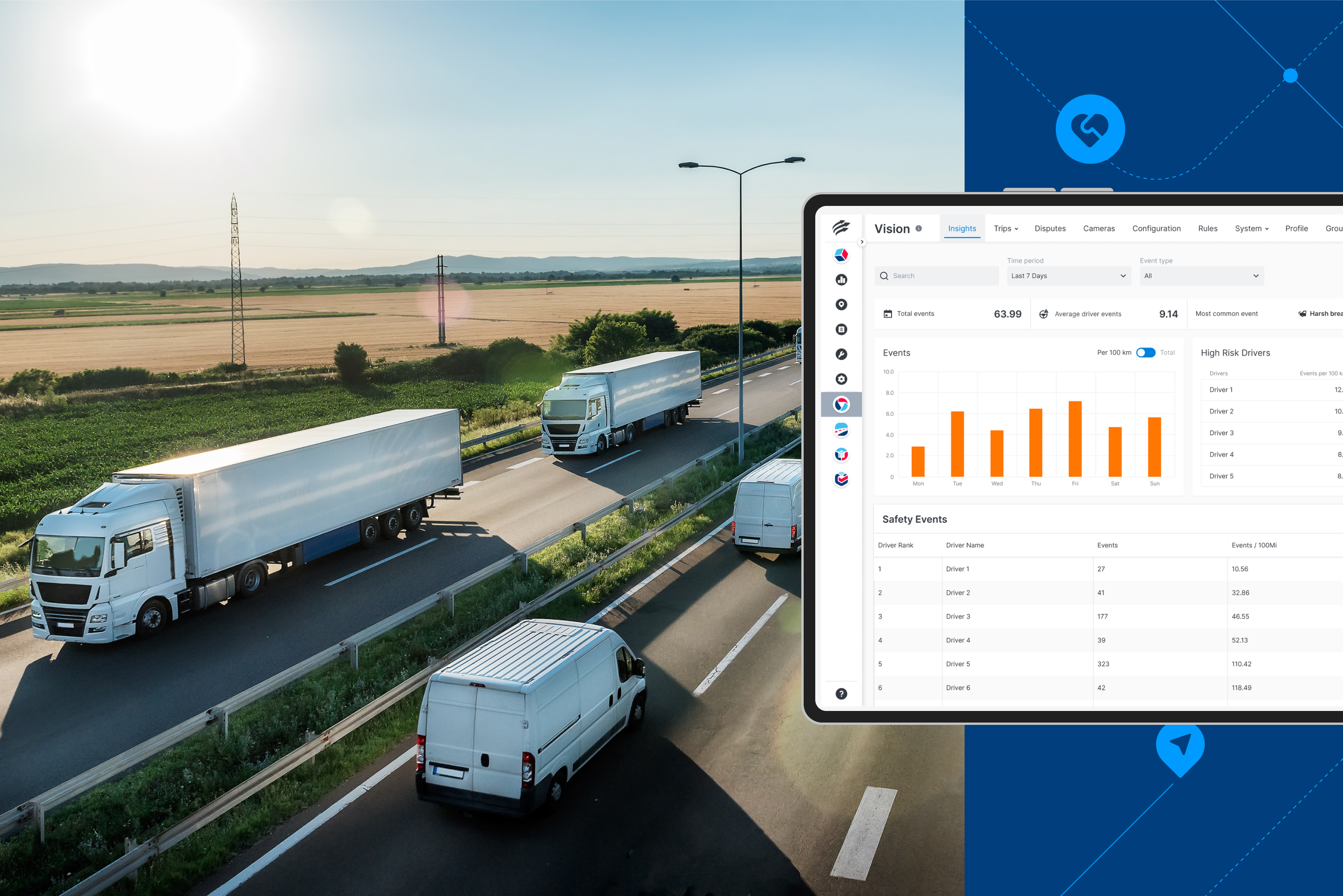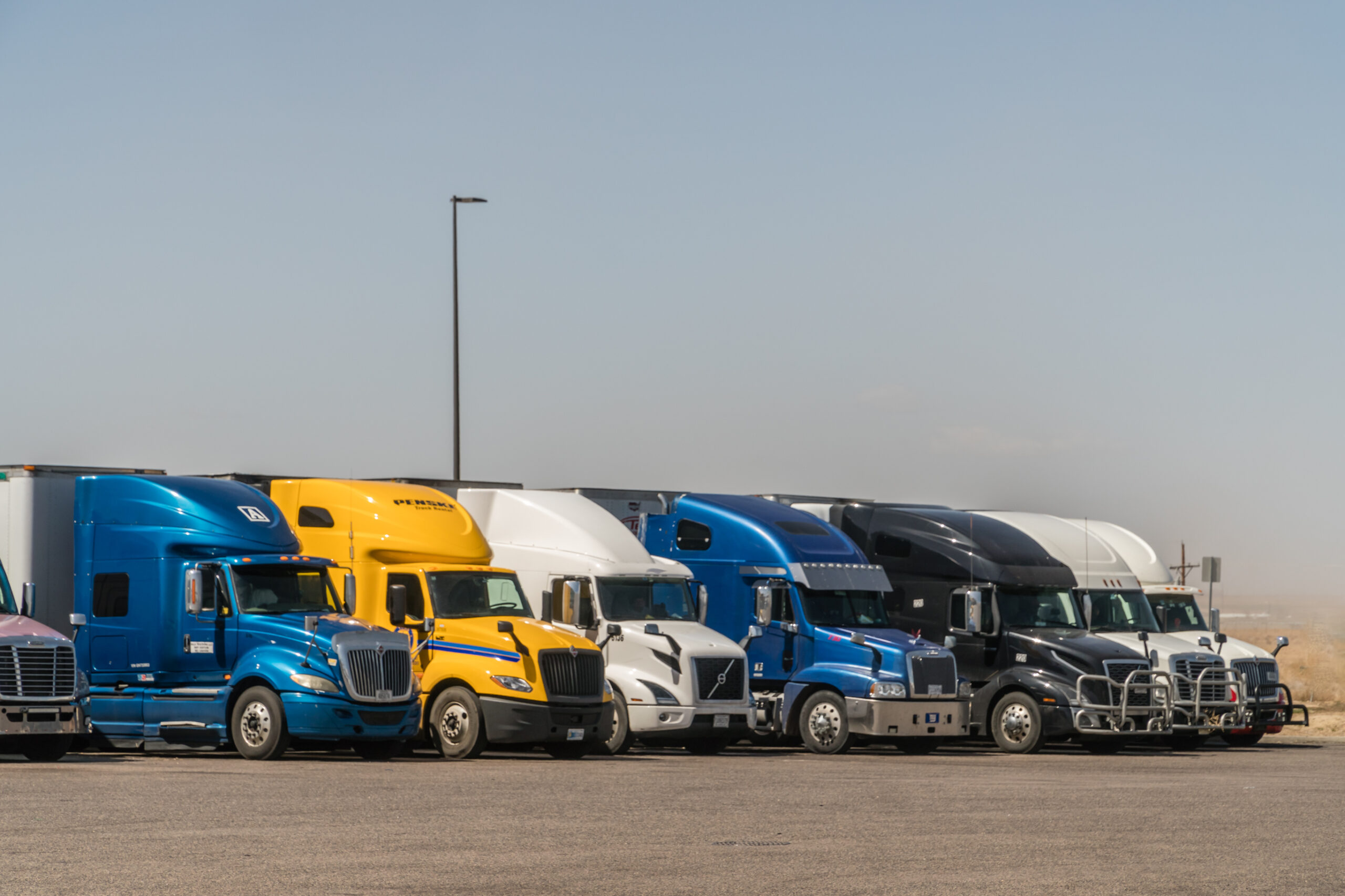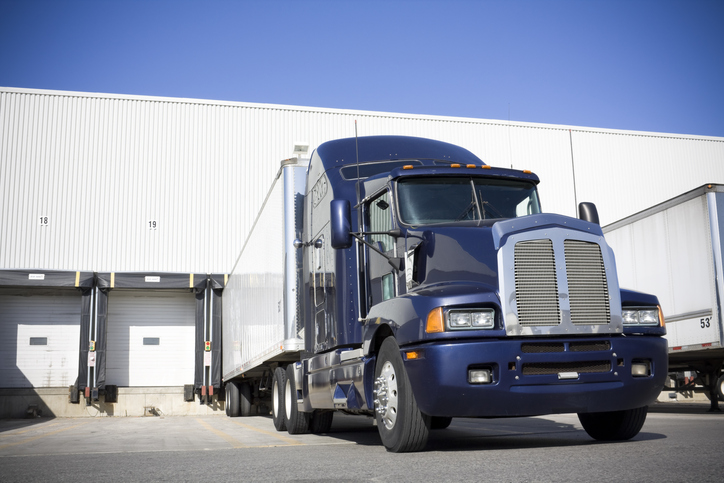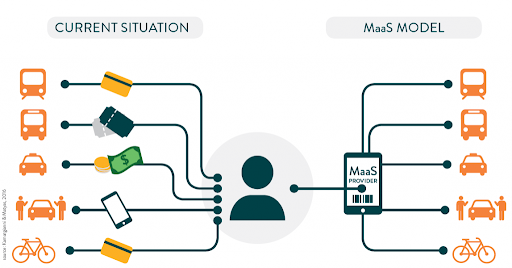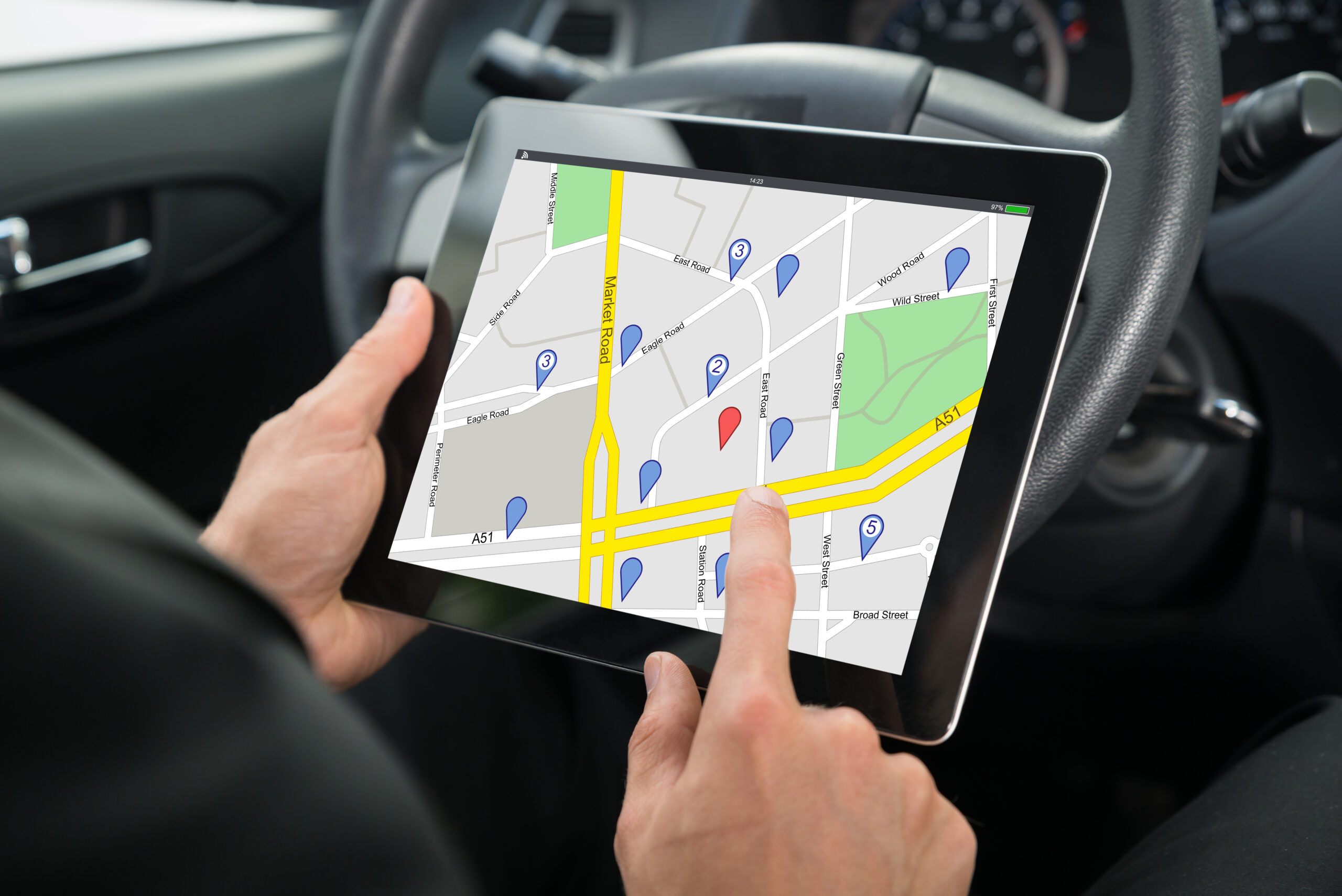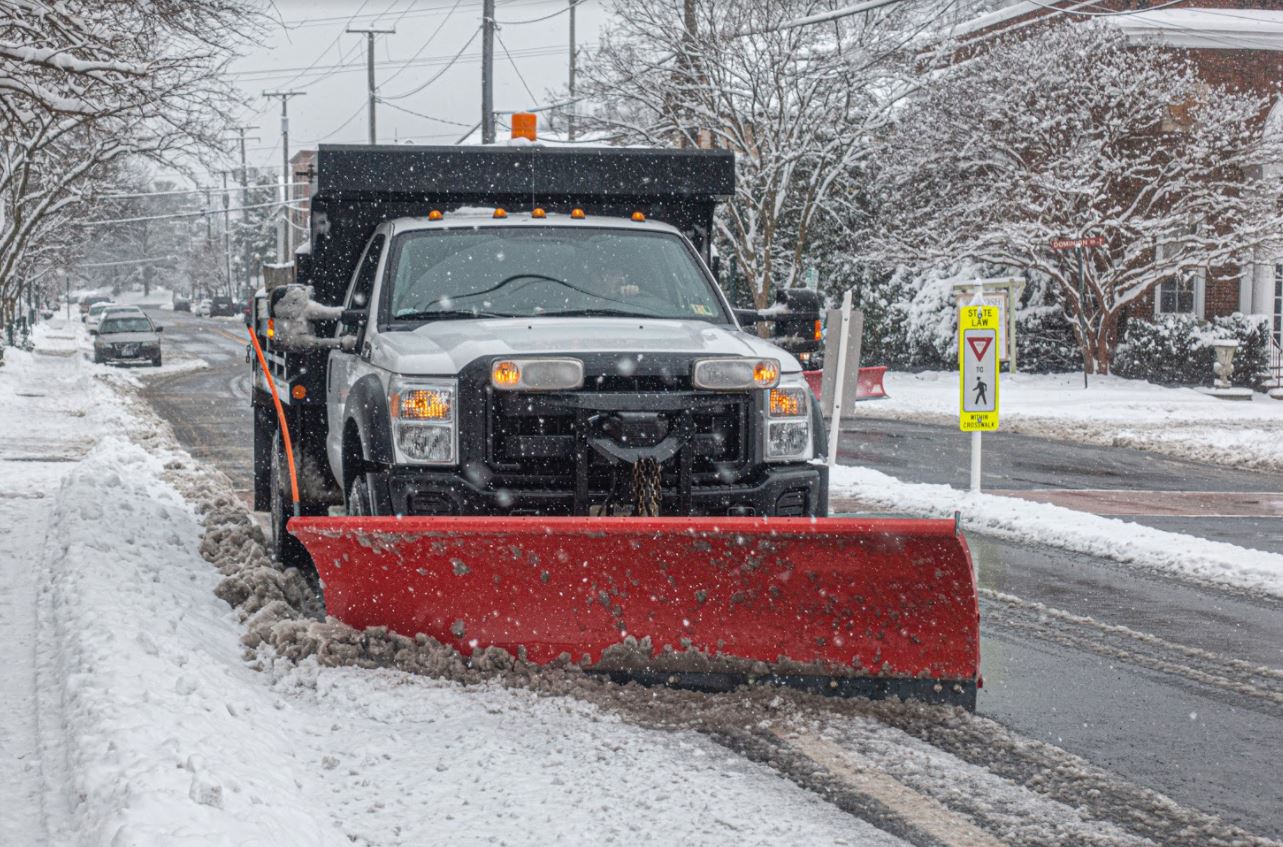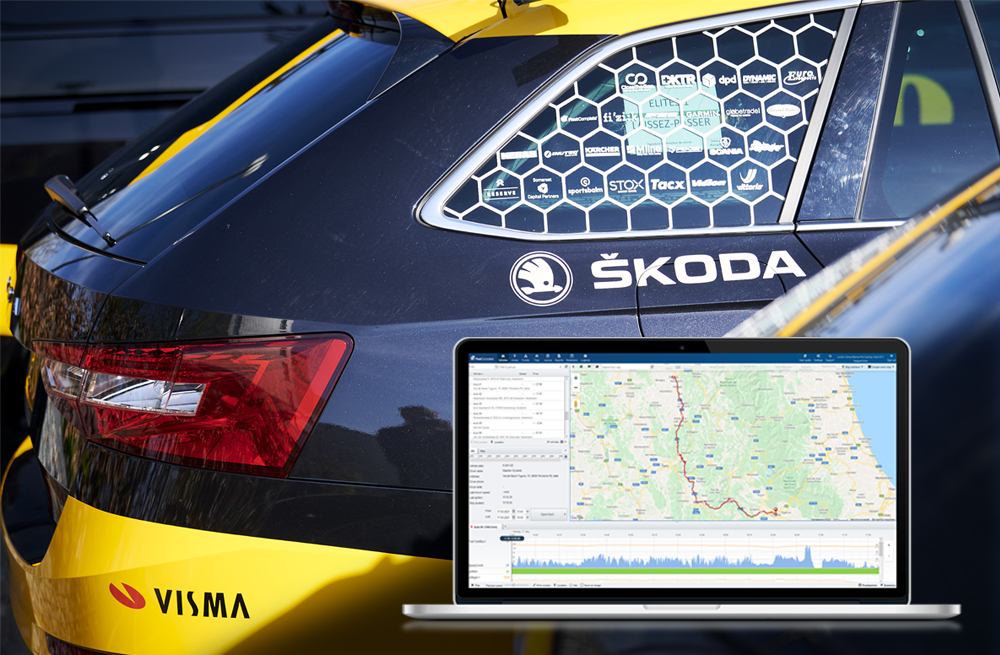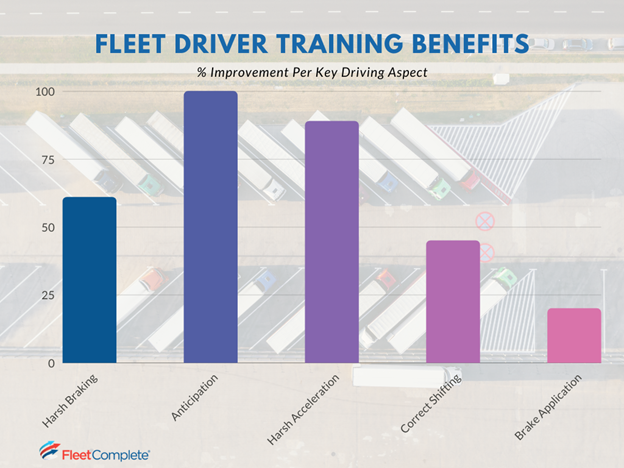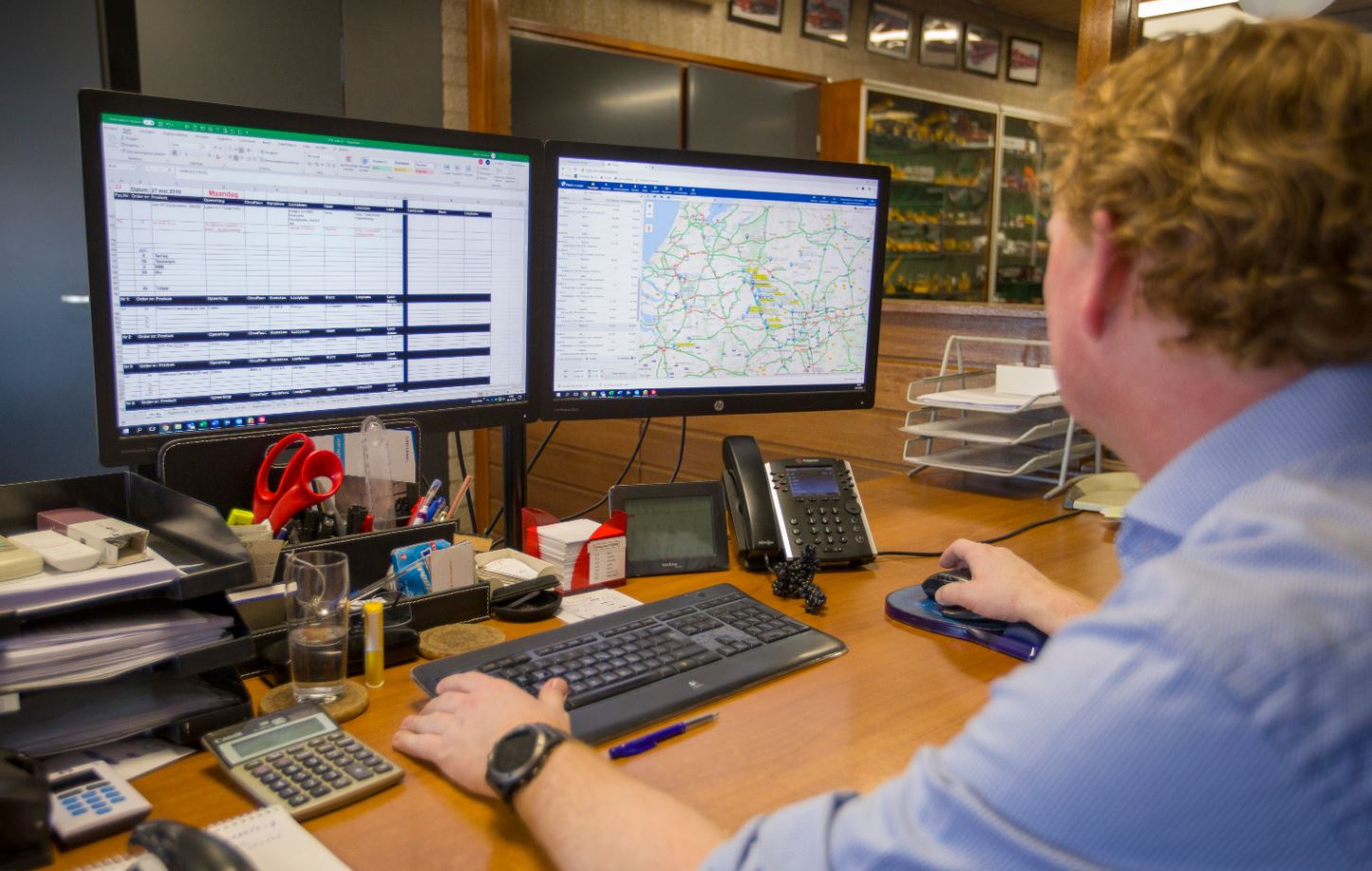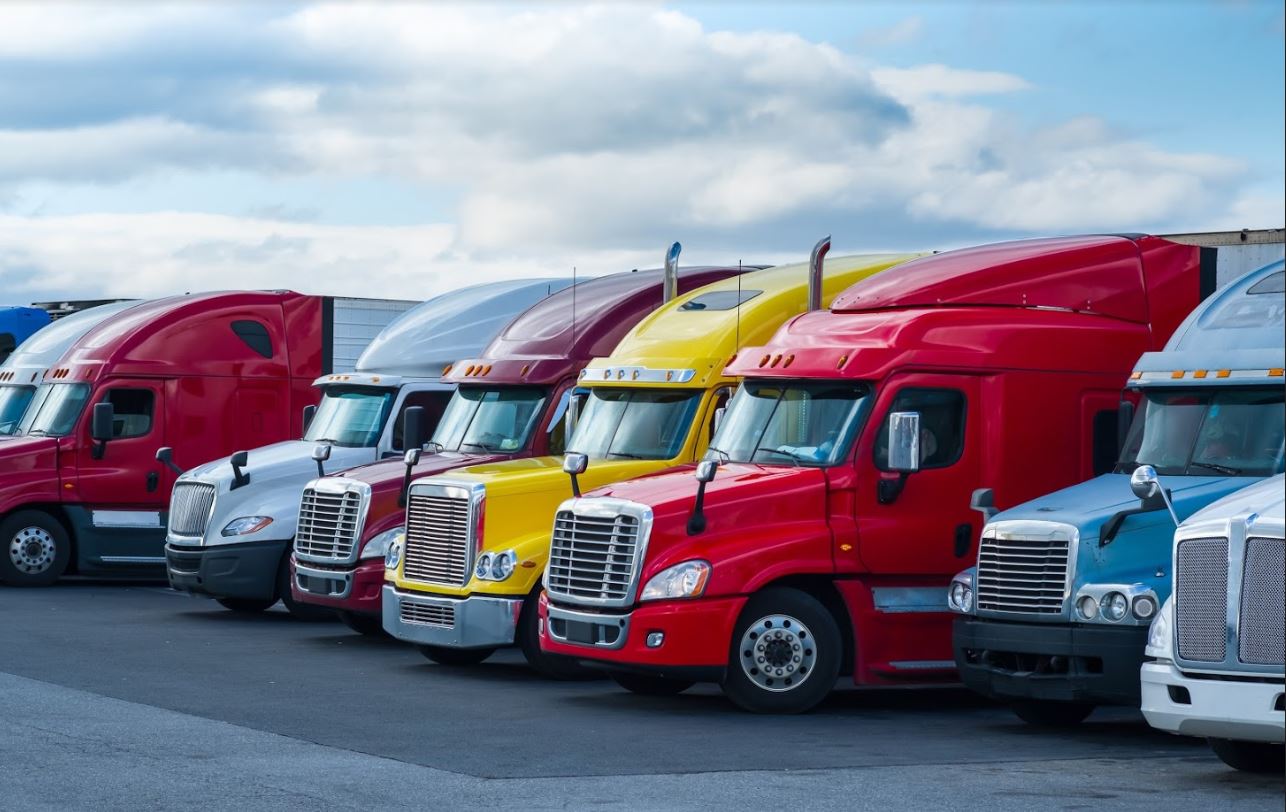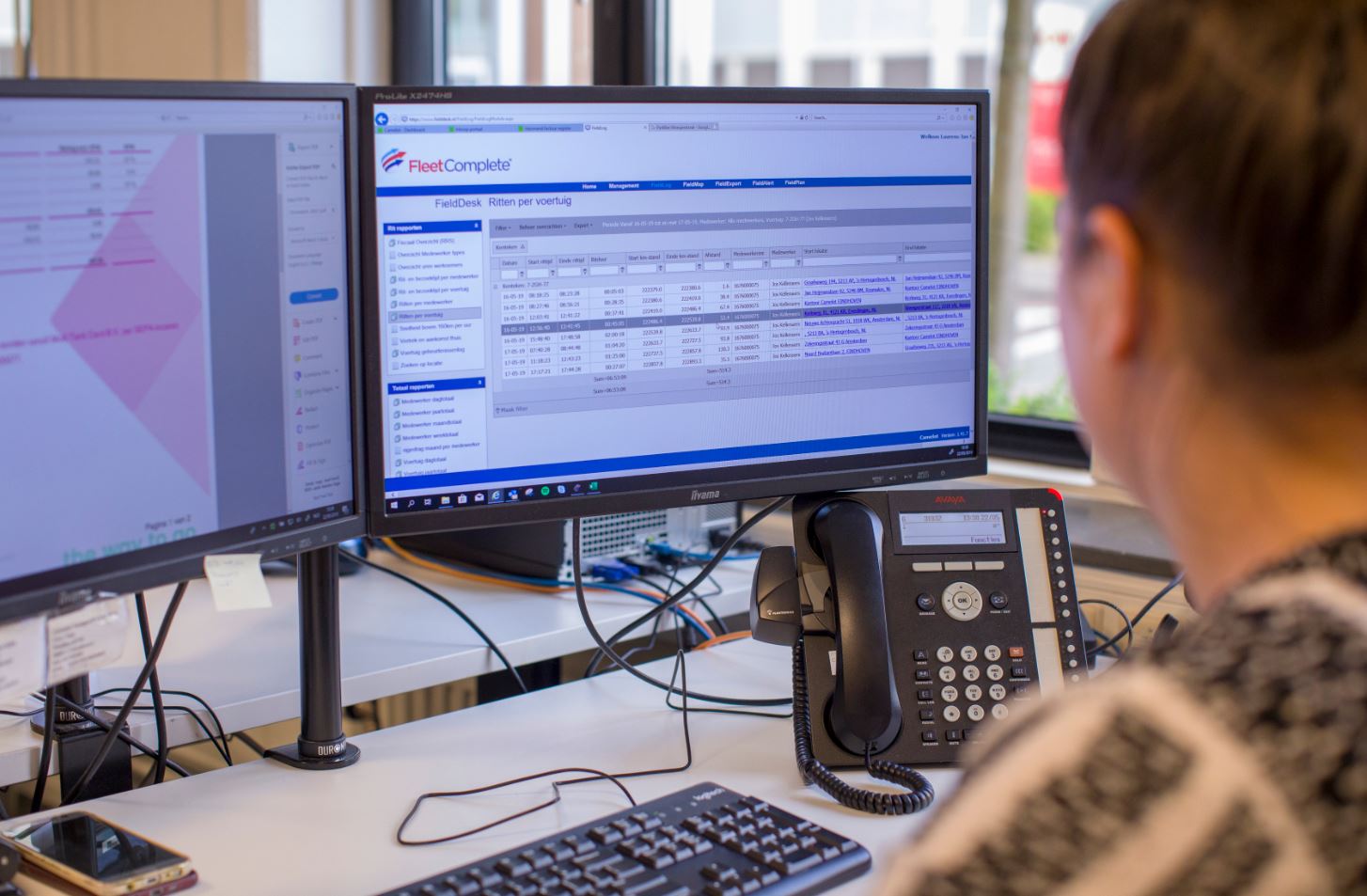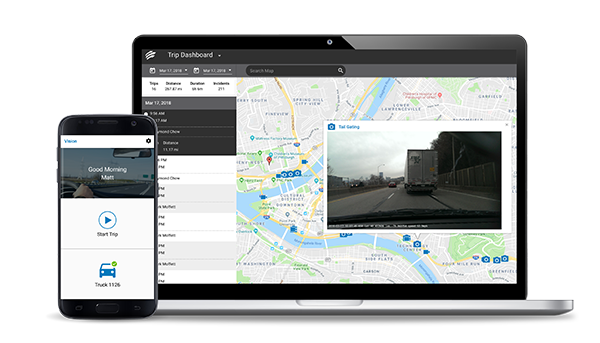Fleet dispatching involves much more than simply sending vehicles to the right location. Dispatchers handle scheduling, routing, vehicle tracking, and load planning. Without effective fleet management solutions, these responsibilities can quickly become overwhelming. Efficient fleet dispatching not only ensures timely deliveries but also reduces costs and enhances customer satisfaction. In this article, we’ll explain the critical role of fleet dispatchers and how connected fleet solutions can optimize your operations.
What is fleet dispatching?
Fleet dispatching is the management process of a fleet, organized by a fleet dispatcher or manager. This process involves assigning drivers and trucks to specific routes, as well as managing deliveries and pickups.
Routing is at the core of fleet dispatching, and it’s the fleet manager or fleet dispatcher’s responsibility to find the most efficient route for the driver. As you can expect, there are a number of obstacles that can interfere with the efficiency of routing, such as unhappy customers and on-demand service requests. To minimize these issues and maximize productivity, fleet dispatching often relies on fleet management software to help keep track of vehicles, allocate jobs and adapt routes to changing road conditions.
What does a fleet dispatcher do?
You can think of a fleet dispatcher a lot like the conductor of an orchestra – there to orchestrate the movement of each vehicle in the fleet and ensure everything operates smoothly. They’re the go-to contact for drivers or technicians to raise any issues or concerns.
Fleet dispatchers have several key responsibilities which can be broken into three categories – managing logistics, managing people and managing vehicles. Let’s dive into these three key components of fleet dispatching:
Logistics management
- Scheduling: Fleet dispatchers are responsible for scheduling deliveries, pickups and service appointments. This involves coordinating with customers, sales teams and other relevant parties to make sure expectations are met and deliveries are scheduled at the right time.
- Routing: As mentioned above, routing is a key part of a dispatcher’s role. Dispatchers are required to find the most effective routes for the fleet, taking into consideration factors such as traffic conditions and road closures.
- Adhering to compliance regulations: Dispatchers must ensure drivers follow rules and regulations that govern driving hours, rest breaks, weight limits and other related guidelines. This ensures they aren’t faced with penalties or fines.
- Expenses: Dispatchers oversee and approve driver’s expenses that they’ve incurred while on the road, such as fuel purchases and vehicle maintenance. They’re responsible for verifying receipts and measuring expenses against budgets.
- Modifying work orders: Should there be a change to work orders due to factors such as customer requests or a change of delivery priorities, dispatchers may need to make adjustments. They may need to reroute drivers or reschedule a delivery to address any unforeseen circumstances.
People management
- Onboarding new staff: Fleet dispatchers play a key role in the onboarding of new drivers or technicians, to support them on their introduction to the business. They may provide training on company policies, software and procedures, as well as ensuring new hires have everything they need to do their job effectively.
- Help troubleshoot issues: Dispatchers can support field workers who come across issues while working. They can offer guidance and problem-solving skills to resolve issues related to routes, customer interactions and vehicle problems.
- Report ongoing problems to senior management: Should a fleet dispatcher come across any recurring issues or patterns of non-compliance, it’s their responsibility to report this to the leadership team.
- Provide timely updates: Dispatchers are required to maintain consistent communication with clients or customers to ensure they’re updated on delays or unexpected issues.
Vehicle management
- Scheduling and dispatching vehicles: The clue may be in the name, but fleet dispatchers are responsible for scheduling the movement of trucks based on demand. They allocate the right amount of vehicles to specific routes, to ensure each truck is used as effectively as possible.
- Overseeing fuel management: Monitoring fuel usage across the fleet is a key priority for fleet dispatchers. They’re required to track fuel consumption and purchases and find ways to improve fuel efficiency.
- Fleet maintenance: Dispatchers oversee the maintenance of vehicles to ensure they’re kept in good working order. This includes scheduling maintenance tasks and repairs.
The benefits of fleet dispatching software
Fleet dispatching software allows fleet dispatchers to feel in control of their to-do lists, with time-saving automation and technology to streamline processes.
Here are some of the key benefits of investing in fleet dispatching software:
- Efficiency: Connected fleet solutions, like a fleet management software and AI dash cams enable you to automate route creation with customized route templates. It streamlines day-to-day management processes such as optimizing routes for fuel efficiency, allowing dispatchers to make real-time changes when needed.
- Improved communication: Fleet dispatchers have numerous drivers to keep in contact with, and fleet dispatching software can ensure seamless communication through automated notifications, messaging features and GPS tracking. Dispatchers can keep drivers informed with the latest updates and can avoid miscommunication.
- Compliance: Fleet dispatching via connected solutions can ensure your business adheres to compliance regulations, such as Hours of Service regulations and safety regulations. Dispatchers can trust software to automate compliance tracking, while being alerted of any issues.
- Flexibility: Dispatching software is customizable to your fleet’s unique needs and requirements. As your fleet grows, dispatching software can be adapted to fit your operational requirements.
Case study
R Courier started with Powerfleet (formerly Fleet Complete) in 2007, looking for a solution to track courier distances, courier waiting times and to provide customers with proof of delivery. Due to the specificity of the company’s business and goals, Powerfleet (formerly Fleet Complete) allocated a dedicated resource to handle all administrative issues and provided software tailored to R Courier’s business needs.
“Due to courier demand, we needed a reliable solution to track our expanding team. The Powerfleet (formerly Fleet Complete) platform helps a dispatcher choose the most qualified courier for a specific call, so that the parcel is on time for its pickup and delivery, ” says Hamid Zeighami, CEO of R-Courier.
With GPS fleet tracking and a customized dashboard for scheduled routes, dispatchers are able to track drivers and provide clients with the delivery status, estimated time of arrival and how many samples will be delivered, so that the client can deploy enough staff for pick up.
Improve your dispatching operations using connected fleet management solutions
Powerfleet’s (formerly Fleet Complete) fleet management solutions can give you the time back to make your fleet the best it can be, allowing you to automate processes and monitor your fleet in real time. Request a demo today to get started.











